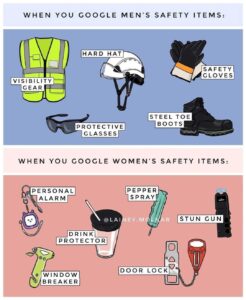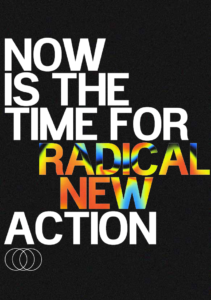In April, the UK Government rejected the recommendations of the Misogyny in Music report issued in January 2024 by the Women and Equalities Select Committee. Let’s just run that again. The UK government decided to take absolutely no action to prevent women from systemic sexism, harassment and discrimination across the music industry in the UK, claiming that enough is being done already. When the news was announced, there were a handful of public condemnations of the government’s response from big hitters such as the Independent Society of Musicians, and the Musicians Union (usefully summed up by Brian Coney’s article in DJ mag). They all claimed there was ‘outrage’ and ‘outcry’ – but until The F List for Music’s conference the other week (see below), I’d seen very little evidence of this. Not in the groups and networks I belong to anyway, and I’m pretty well connected in this space. In fact, it took me two days to even hear that the response document had been published, such has been the lack of commentary from the industry.


I’m writing this the week after Resident Advisor went public with yet another investigation of alleged sexual assault against Kamaal Williams, and just this morning I saw an arresting cartoon from Lainey Molnar depicting the differences between Google searches for ‘Men’s safety equipment’ and ‘Women’s safety equipment’. Whether in the street, at home or at work, millions of women fear for their safety in ways that men rarely have to. At a time when the 2023 UN Gender Social Norms Index shows that close to 9 out of 10 still hold fundamental biases against women, the government is not doing all it can.
So I asked some questions on social media and it seems I’m not alone. Either people hadn’t heard that the response document was out, or they were so resigned to no-one ever doing anything about the poor treatment of women in music and beyond, that the government’s response felt like ‘business as usual’. Comments I received ranged from “I bet if male allies had submitted the evidence there would have been some action” to “the government’s claim that they are doing everything already is pure gaslighting.”
The report, published in January 2024 was the culmination of extensive hearings and consideration of evidence from women working in all areas of music in the UK. It found overwhelming evidence of sexism, harassment and discrimination everywhere – much of which was either generated or exacerbated by the ways in which misogyny is baked into structures and systems ranging from childhood education, to the law. It made 34 recommendations to the industry itself, the UK Government, the Office for Students (OfS) and the soon to be inaugurated Creative Industry Independent Standards Authority (CIISA). The 35 page response document included replies by Government, the Office for Students (OfS) and CIISA (but notably not from any industry bodies). The OfS and CIISA communicated how they plan to work with the Committee to bring about change, but here’s what the Committee had to say about the Government’s response:
Despite warnings that women pursuing careers in music face “endemic” misogyny and discrimination in a sector dominated by self-employment and gendered power imbalances, the Government failed to accept WEC’s wide-ranging recommendations to transform industry protections relating to the Equality Act and non-disclosure agreements (NDAs)


These two of the 34 recommendations are perhaps the most important in protecting women in the industry. The Misogyny in Music report recommended that the scope of the Equality Act 2010 be extended so that freelancers have the same redress against work-related sexual harassment or discrimination as people who are employed. The act currently does not cover the self-employed who are left outside the law, and latest figures estimate 28% of people working in creative industries are freelancers – twice the number of freelancers in the UK population as a whole. My gut feel is that’s a lot higher for musicians too. That’s a lot of people with no employment rights, and a lot of women with no recourse to the law if they are subject to discrimination, harassment or bullying.
The second issue relates to NDAs – gagging orders that organizations effectively force victims of sexual harassment and discrimination to sign in exchange for a payout and/or not being dragged through the courts. NDAs were designed to protect commercial interests, not silence victims of abuse and enable the perpetrators to remain in their roles and the Misogyny in Music report called for this loophole to be closed. One source I spoke to put forward the view that CIISA had been made a scapegoat for this government inaction – offloading responsibility to the new independent authority to give advice to what promises to be an avalanche of creatives who are currently not protected from sexual harassment and discrimination by the law. Others have expressed scepticism that CIISA will ‘have sharp enough teeth’ since it’s funded by industry stakeholders – and who bites the hand that feeds them?
So what can we do? Speaking at The F List for Music conference’s opening panel on the Misogyny in Music report, prominent LGBTQIA+ rights activist Polly Shute suggested that consistent inaction is intentional to wear women down, “hoping we’ll just get tired and go away”. Naomi McCarthy Senior Campaigns and Policy Officer for the Independent Society of Musicians echoed this saying we need to “keep fighting, shouting and being resilient” and the best way to do this was by lobbying the UK government Shadow Ministers who are much more receptive to the legal changes the report called for. With the UK General Election now set for the 4th July 2024, we can only hope that a new government is formed that takes the plight of women in music more seriously than this one. So we can change the record.

